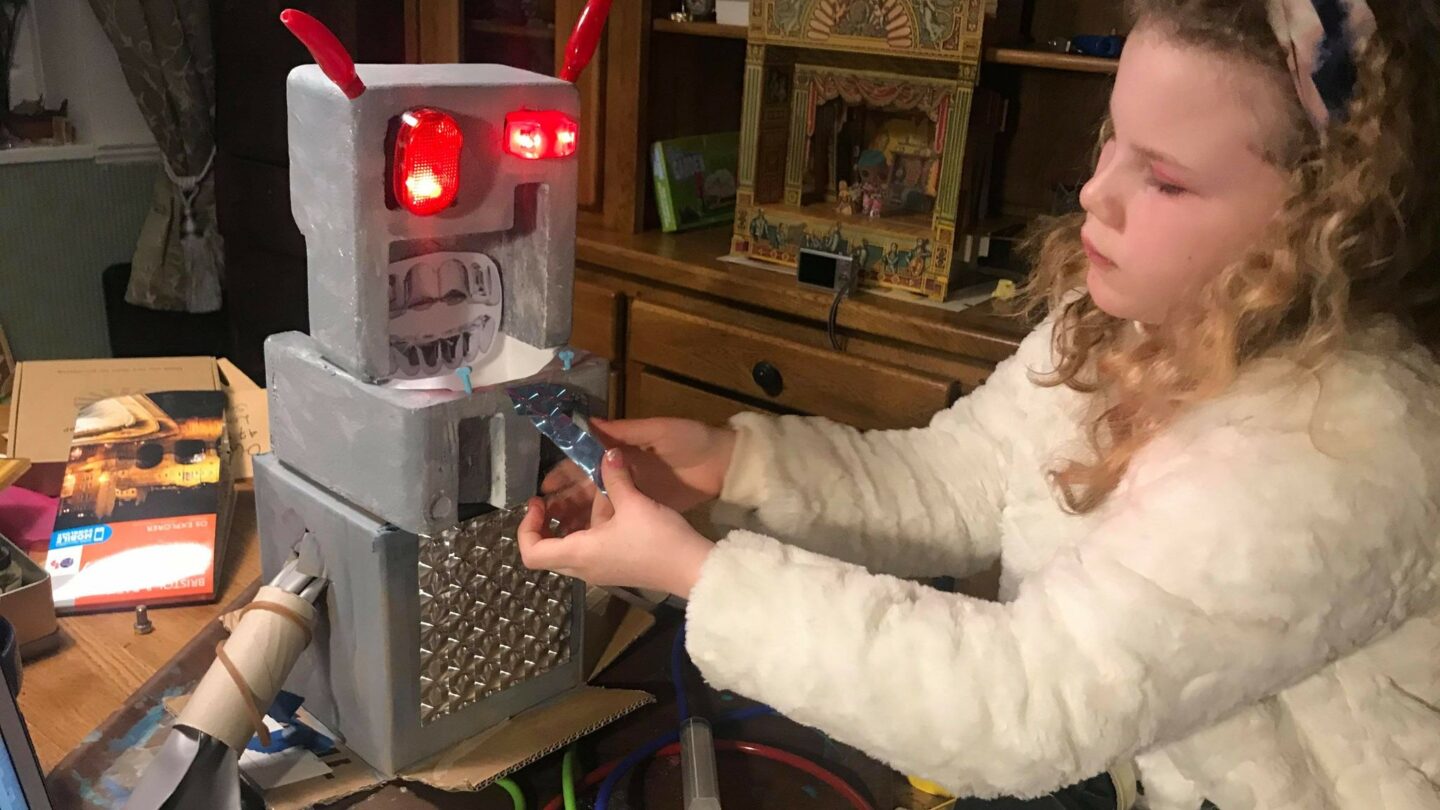Lost robots are helping to make technology more accessible
Little Lost Robot is a project run by Ruby and Joseph Wilk, that aims to make technology as accessible and democratic as possible.
“I think it’s really easy now, with the advent of new tech, to basically shut people out; because, you know, it’s another new toy isn’t it?” Ruby said.
Technology is advancing quickly and can be easily accessible to those who come from certain backgrounds but can be challenging to learn for those who don’t. For example, it’s easier for me to learn to use technology because—as a millennial—I have grown up alongside it, whereas someone of an older generation would not have had that exposure. Everyone with a technophobic parent raise your hands!
Building the Robot: Finding a Mutual Interest
After dipping her toe into an art college Ruby began building wacky, unusual, sculptures by the Thames, as she pursued work in building sets and scenery. During this time she mainly worked with BoomTown Fair, an immersive theatrical festival that quite literally makes you part of the story.
A year ago, Ruby gained an Automation Fellowship from the South West Creative Technology Network (SWCTN), using it to focus on the art of robotics. During the fellowship, she met Joseph—who focuses on digital tech and digital art—and together, their interest in working with people from unusual backgrounds collided.
They are both working to provide ‘evidence’ that the creative industries can be collaborative and that digital tech, in particular, can be inclusive.
“I think, artists especially, have a lot to offer, especially when it comes to digital tech,” Ruby said. “I think that digital tech is quite an insular place, and doesn’t really work for people—apart from digital technologists. So much stuff is just programmed for white middle-class dudes, am I right?”
Ruby and Joseph are currently working on building large-scale robotic playable spaces, including a project mapping the city of Bath and generally working to engage people who don’t often access technology – so that they can feel heard.
Making Things Accessible
For Ruby and Joseph, the Studio has been an imperative space for them, both for Joseph’s disability needs and for Ruby’s ambitious sculptures. Now, cafes are behind them, and they finally have a space where they can collaborate on their work without having to manoeuvre and organise things between each other as they work between spaces. The Studio offers an affordable, accessible space for the team to bring in their robots and work closely—a space, which in Bath, is hard to come by.
It was great to talk to Ruby, make sure to keep an eye out for more development on Little Lost Robot.
Find out more about Little Lost Robot’s Residency here.
